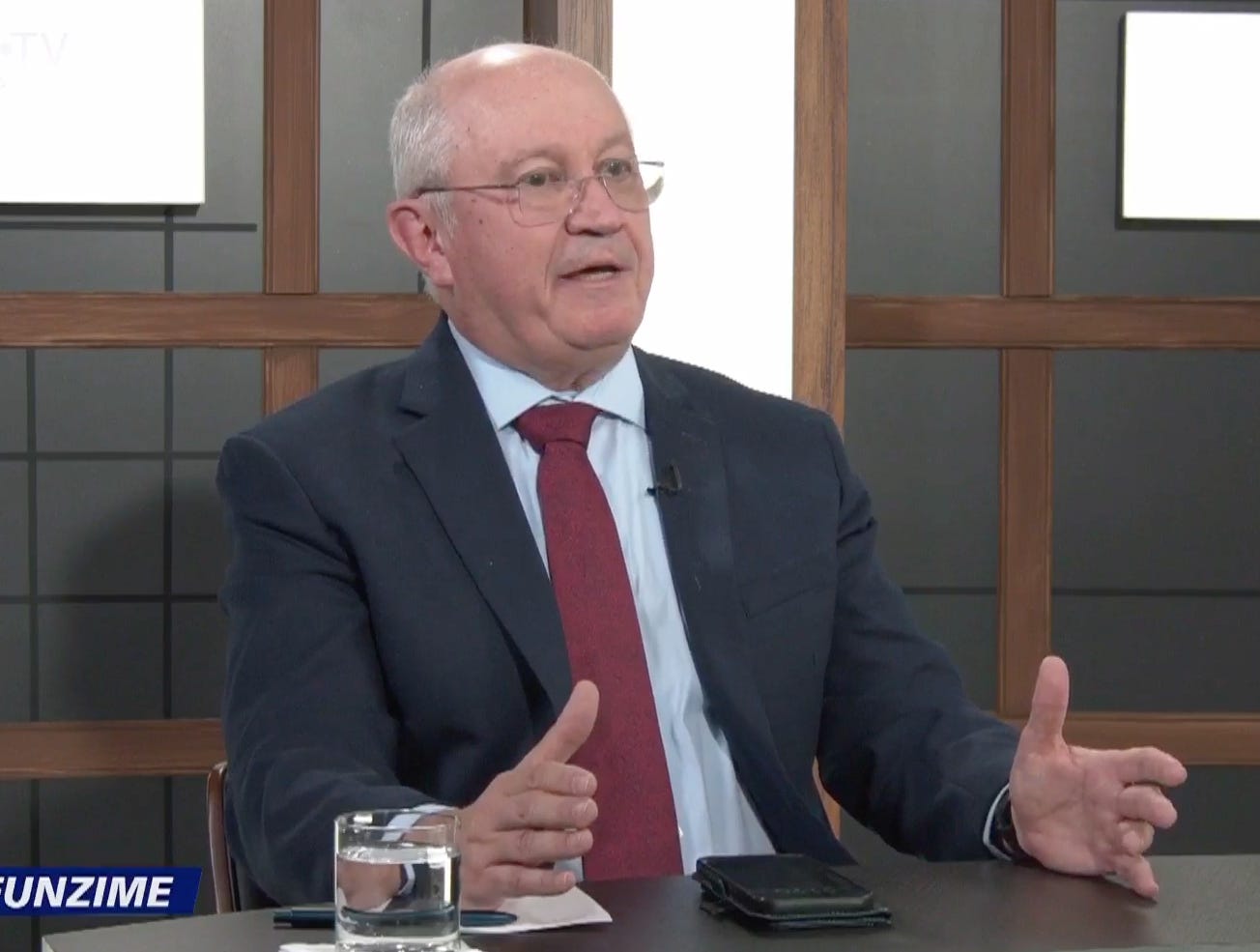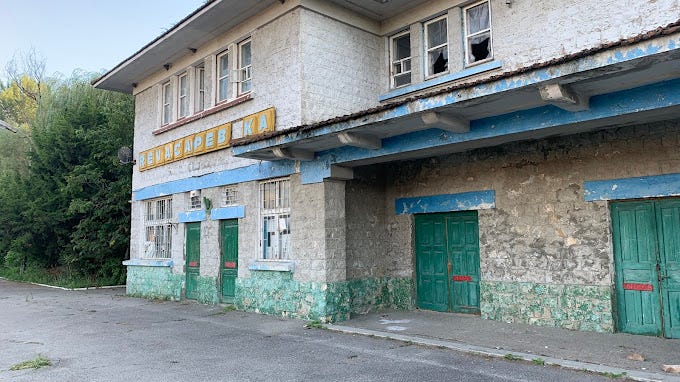Hi everyone and welcome back to Moldova Matters! Today we’re going to cover a sort of mini-roundup covering the events since last Friday when the last Weekly Roundup went out. The reasoning for this is twofold, firstly - I want to try and get these roundups back to an earlier in the week publishing schedule1. Secondly, the pace of news is about to pick up considerably as parliament sits for the first time, a government is voted in and new ministers are announced. We’ll have lots of content to come, so I wanted to get us caught up on other news before that process starts tomorrow. Thanks for bearing with me!
Alexandru Muntean Speaks to the Press
Following last week’s “scrutiny,” Prime Ministerial Candidate Alexandru Munteanu has given a number of interviews. He’s been working to both clear up misconceptions, and introduce himself and his priorities to the country.

Munteanu’s 3 Citizenships
Moldova’s prospective Prime Minister clarified that he holds 3 citizenships - Moldovan, American and Romanian. He stated that he had also been offered French Citizenship, but that he refused as “It would have been too much.2”
He explained that he became an American citizen in 2006, and that prior to this, he his family lived in the US on a Green Card when he worked for the World Bank. Munteanu stated:
“I was offered to become a US citizen. The Americans have this citizenship program for ‘exceptional characteristics.’ [see footnote3] And they thought I had them.
And I accepted the proposal because I was impressed by the American economy, I like this country, I have two sons who live and work in the USA.”
Munteanu’s 3 Priorities
Speaking to the press, Mr. Munteanu outlined his top 3 priorities in government as the following:
Increasing investment (and to shift from consumption to investment4)
Developing small and medium enterprises (SMEs)
Raising the standard of living for the most vulnerable
Pressed by journalists on whether now was the time to tackle very painful issues, such as administrative territorial reforms, he rejected the premise. Munteanu suggested that these topics need not be painful if they are properly communicated and enacted. Previously, Speaker Grosu had implied that administrative territorial reforms could be enacted before the 2027 local elections. Since such reforms will impact what offices those elections will entail, that means soon.
Author’s Note: “Administrative territorial reforms” refers to a few problems in Moldova that successive governments have promised to fix but not actually made any progress on. Moldova is divided into 32 raions (districts), 2 municipalities (Chisinau and Balti) and 1 autonomous region (Gagauzia)… and also Transnistria. Under this layer there are numerous towns and villages electing mayors and town councils. Some towns are as small as a few hundred people. These reforms would see a consolidation of many of these administrative units - perhaps back to the 1998-2003 situation where there were 13 județe (counties) instead of 32 raions (districts). It would also involve a decentralization of budgetary control to local governments. Currently, most budgetary control resides in Chisinau setting up opportunities for party political patronage and discouraging localities from bringing in investment (a new factory wears out the roads but does not increase local tax receipts, etc).
This is a very hot button issue and no party has proposed any serious approach to the problem in a long time. The consensus has been that this type of reform must happen at a time far away from elections - aka a time like now.
Parliamentary and Political Updates
Here’s a roundup of the other top political stories of the week:
The Communists are leaving the Patriotic Bloc, forming the “patriotic coalition.” Voronin confirmed that he would leave the block he was elected on with the 8 communist party MPs. He criticized the block for “poor results” in the election and called on all opposition parties to form a new patriotic coalition (led by him).
Igor Dodon announced that he will take his seat in Parliament. The Socialist Party leader was elected in previous elections but mostly refused his seat and chose to lead the party from outside of parliament. This time he plans to keep his seat. Commenting on the moves of the Communists he stated:
“People, a quarter of Moldovan citizens, didn’t vote for the Socialists, the Communists, or Tarlev’s party5. They voted for an electoral bloc. It’s unclear what the results of each party individually would have been if they had run separately6.”
Minister of Health Ala Nemerenco will not remain in post. She announced this on a facebook post saying only that “I am not on the list of the new Government.” Nemerenco became minister in August 2021 in the Gavrilita government and has served ever since. She was recently awarded the Order of the Republic by President Sandu for her work - Moldova’s highest state award.
Vasile Costiuc has signed a “collaboration protocol” with George Simion and the Romanian AUR Party. The leader of Democracy at Home (PPDA) traveled to Bucharest for talks and made a joint appearance with the far-right extremist who is banned from entering Moldova and Ukraine. Both men hailed the beginning of a new partnership.
Could Moldova Join the EU Without Voting Rights?
This week Politico reported on a new proposal circulating within EU institutions to accelerate EU accession for new members by limiting their right of veto. The proposal would allow new countries to join with voting rights suspended until the EU as a whole renegotiates its treaties to allow for qualified majority voting in key areas. This proposal was pitched as a way to get Hungary on board with enlargement7. Currently this is just pitched as an idea - all 27 EU members must approve for it to move forward.
Plahotniuc Updates
Anti-Corruption Prosecutors have convinced a judge to maintain Plahotniuc’s pre-trial detention for another 30 days. They argued that with his wealth, numerous fake identities, plus his 6 years on the run, he was a flight risk. His lawyers called these claims “baseless.”
Meanwhile, Constantin Țuțu was forcibly brought to court after refusing to attend hearings. He has now officially petitioned the court to allow his trial to proceed without him attending in person. For unclear reasons he prefers to remain in jail.
In other justice related news, a “senior officer” of Prison 13 (where both men are currently residents) was convicted in aiding the escape of a Ukrainian woman in June. The inmate, Anastasia Shadrina, had been convicted of fraud and remains at large. The officer, Mihail Caraman, was sentenced to 3 years in prison with a mandatory 2 behind bars before he is eligible for parole.
A Train from the Airport to the City?
This week Minister of Infrastructure and Regional Development, Vladimir Bolea, announced that such a train could be operational by Spring 2026. Minister Bolea explained that the huge increase in airport traffic (up to 6 million passengers this year) has caused major congestion. The government is testing a train route between the Revaca station (very near the airport) and the Chisinau Railway Station. A test train ran the route at 20 km / hr and made the journey in 12 minutes. The Minister stated that they are working on a technical plan to increase the speed to 50 km / hr and to open the route to the public by Spring.
Presumably the plan would also entail a shuttle bus connection to the Revaca station, and (hopefully) some remodeling of the aging train station.

My plans for a consistent publishing schedule have been futile so far… but why not try again?
Recall, Moldova Matters initially reported that he was a Moldovan, American and French citizen - before issuing a hasty correction last week.
To clarify - there is no mechanism for “exceptional people” to be given US citizenship. What he is most likely referring to is the special categories of Employee-Based Immigration visas such as EB-1 (called “Extraordinary Ability”). An economist working for the World Bank, or some other extraordinary scientist of artist may get such an employment visa and then become a naturalized citizen after living in the US for 5 years of lawful permanent residence. Reuters has reported that Munteanu lived in Washington DC working for the World Bank for 10 years.
This language about shifting consumption to investment most likely refers to a reorientation of EU funds (grants and loans) towards investment projects. In the last few years, a large proportion of these funds have been directed at consumption (e.g. energy price compensation).
It feels like even Dodon can’t remember the name of Tarlev’s party.
Almost certainly the Communists would not be in parliament at all.
I don’t see how this works, Hungary isn’t worried about new mini-Hungary’s coming on board (e.g. Moldova joins, elects a pro-Russian government and starts vetoing everything). Hungary is very happy *being* Hungary and vetoing everything. More likely it is meant to assuage the other holdouts hiding behind Hungary. Currently, all 27 EU countries support Moldova moving forward. Hungary is blocking Ukraine, but likely other countries are hiding behind the Hungary veto. This model might also make it possible for Albania and other Western Balkan countries to make progress after being stalled for many years.
If anyone has any insight into what I’m missing please leave a comment!

